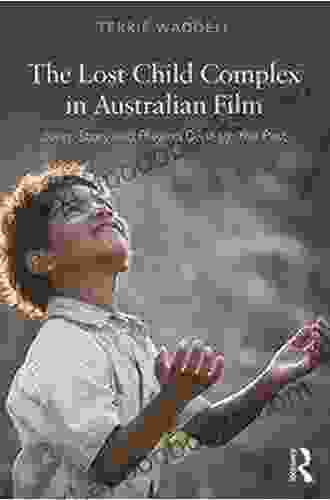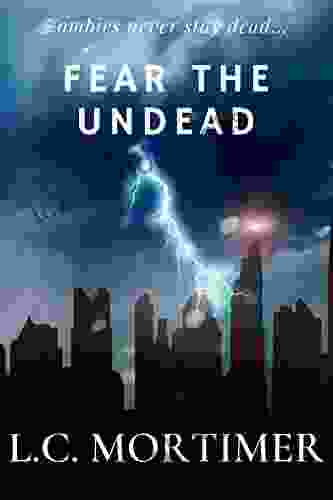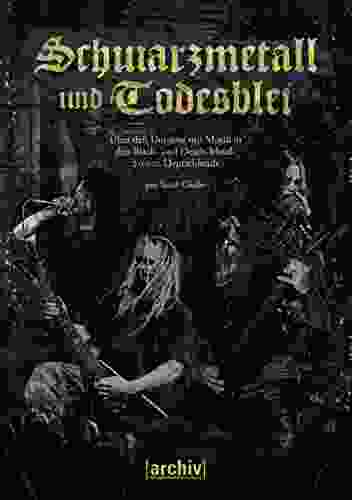Unveiling the Lost Child Complex in Australian Cinema: A Journey into the Heart of Identity and Belonging

4.7 out of 5
| Language | : | English |
| File size | : | 2269 KB |
| Text-to-Speech | : | Enabled |
| Screen Reader | : | Supported |
| Enhanced typesetting | : | Enabled |
| Word Wise | : | Enabled |
| Print length | : | 172 pages |
| X-Ray for textbooks | : | Enabled |
Australian cinema has long grappled with the complex and often painful history of the nation, exploring themes of displacement, trauma, and the search for one's true place in the world. One of the most enduring and powerful motifs in this cinematic landscape is the Lost Child Complex, a multi-faceted concept that encapsulates the psychological and emotional experiences of individuals who feel disconnected from their families, communities, and cultures.
In this article, we will delve into the Lost Child Complex as it manifests in Australian film, examining its historical roots, psychological underpinnings, and profound impact on the Australian psyche. Through a close analysis of key films, we will illuminate the ways in which this cinematic trope has shaped our understanding of Australian identity, belonging, and the ongoing journey towards reconciliation.
Historical Roots of the Lost Child Complex in Australia
The Lost Child Complex in Australia has its origins in the country's colonial history and the forced separation of Aboriginal children from their families. This practice, known as the Stolen Generations, resulted in the removal of thousands of children from their communities and their placement in white institutions, where they were subjected to assimilation and cultural erasure.
The trauma experienced by these children has had a lasting impact on Australian society, shaping the identity and self-perception of Indigenous Australians for generations. The Lost Child Complex, as depicted in Australian film, reflects the profound sense of loss, disconnection, and longing that many Indigenous Australians continue to experience.
Psychological Underpinnings of the Lost Child Complex
The Lost Child Complex is a psychological phenomenon that can manifest in individuals who have experienced separation from their primary caregivers or other significant figures in their lives. This separation can be physical, emotional, or psychological.
Individuals who experience the Lost Child Complex may feel a sense of abandonment, insecurity, and a longing for connection. They may also struggle with issues of identity and belonging, as they grapple with the question of where they truly belong in the world.
The Lost Child Complex in Australian Film
The Lost Child Complex has been a recurring theme in Australian film since the early days of cinema. Some of the most notable and critically acclaimed films that explore this theme include:
- The Tracker (2002): This film follows the story of an Aboriginal tracker who is hired to track down a white man who has murdered a young Aboriginal girl. As the tracker pursues his quarry, he is forced to confront his own past and the trauma that he has experienced.
- Rabbit-Proof Fence (2002): This film tells the story of three Aboriginal girls who escape from a government institution and embark on a dangerous journey back to their homelands. Along the way, they must overcome racism, hunger, and the threat of capture.
- Ten Canoes (2006): This film is set in Arnhem Land in the 1930s and tells the story of a group of Aboriginal men who are hunting for crocodile eggs. As they travel through the bush, they share stories and rituals that illuminate the complexities of their culture.
- Samson and Delilah (2009): This film follows the story of a young Aboriginal couple who fall in love and struggle to overcome the challenges of poverty, racism, and drug addiction. The film explores the themes of love, loss, and the search for redemption.
These films, and many others, have played a significant role in raising awareness of the Lost Child Complex and its impact on the lives of Indigenous Australians. They have also contributed to a greater understanding and appreciation of Aboriginal culture and history.
The Impact of the Lost Child Complex on Australian Identity and Belonging
The Lost Child Complex has had a profound impact on Australian identity and belonging. It has shaped the way in which Australians view themselves, their history, and their place in the world.
For Indigenous Australians, the Lost Child Complex is a reminder of the trauma that their people have endured. It
4.7 out of 5
| Language | : | English |
| File size | : | 2269 KB |
| Text-to-Speech | : | Enabled |
| Screen Reader | : | Supported |
| Enhanced typesetting | : | Enabled |
| Word Wise | : | Enabled |
| Print length | : | 172 pages |
| X-Ray for textbooks | : | Enabled |
Do you want to contribute by writing guest posts on this blog?
Please contact us and send us a resume of previous articles that you have written.
 Book
Book Novel
Novel Page
Page Chapter
Chapter Text
Text Story
Story Genre
Genre Reader
Reader Library
Library Paperback
Paperback E-book
E-book Magazine
Magazine Newspaper
Newspaper Paragraph
Paragraph Sentence
Sentence Bookmark
Bookmark Shelf
Shelf Glossary
Glossary Bibliography
Bibliography Foreword
Foreword Preface
Preface Synopsis
Synopsis Annotation
Annotation Footnote
Footnote Manuscript
Manuscript Scroll
Scroll Codex
Codex Tome
Tome Bestseller
Bestseller Classics
Classics Library card
Library card Narrative
Narrative Biography
Biography Autobiography
Autobiography Memoir
Memoir Reference
Reference Encyclopedia
Encyclopedia Santiago Posteguillo
Santiago Posteguillo Matt Ridley
Matt Ridley Mark Godsey
Mark Godsey Suzanne Y Saunders
Suzanne Y Saunders Ricardo Mena
Ricardo Mena Nancy W Kelley
Nancy W Kelley Richard Mcmunn
Richard Mcmunn Osnat Ben Ami
Osnat Ben Ami Steve Platt
Steve Platt Laila Ibrahim
Laila Ibrahim Kurtis Eckstein
Kurtis Eckstein Larry Edell
Larry Edell Patricia Loofbourrow
Patricia Loofbourrow Simon Chan
Simon Chan Samantha Belanger
Samantha Belanger Peter Gelling
Peter Gelling Remi Kanazi
Remi Kanazi Mark West
Mark West William Alan Webb
William Alan Webb Kirari Zen
Kirari Zen
Light bulbAdvertise smarter! Our strategic ad space ensures maximum exposure. Reserve your spot today!
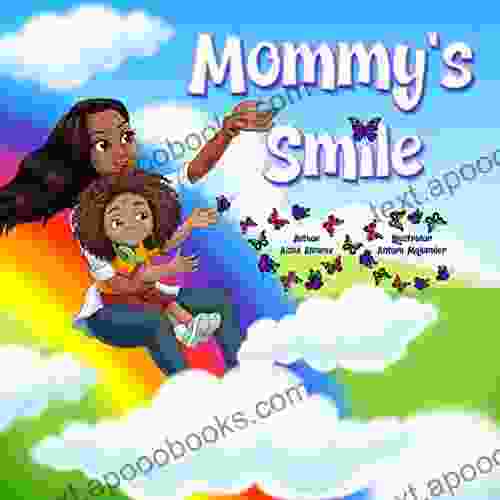
 Robbie CarterMommy Smile: Unlocking the Secrets of Holistic Parenting with Rudolf Steiner
Robbie CarterMommy Smile: Unlocking the Secrets of Holistic Parenting with Rudolf Steiner Junot DíazFollow ·13k
Junot DíazFollow ·13k Joseph ConradFollow ·11k
Joseph ConradFollow ·11k Timothy WardFollow ·4.6k
Timothy WardFollow ·4.6k John KeatsFollow ·5.1k
John KeatsFollow ·5.1k Neil GaimanFollow ·15.2k
Neil GaimanFollow ·15.2k Devin CoxFollow ·4.3k
Devin CoxFollow ·4.3k Aubrey BlairFollow ·5.1k
Aubrey BlairFollow ·5.1k Casey BellFollow ·13.5k
Casey BellFollow ·13.5k
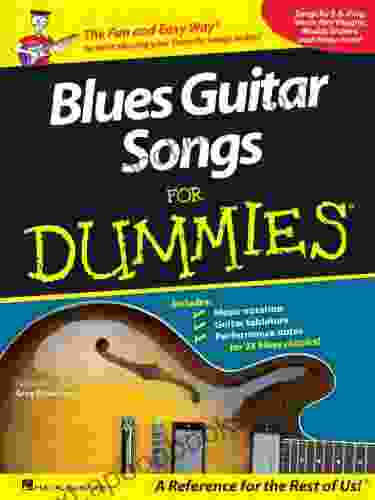
 Henry Wadsworth Longfellow
Henry Wadsworth LongfellowUnleash the Blues Spirit: Dive into "Blues Guitar Songs...
The captivating allure of the blues has...

 Ernesto Sabato
Ernesto SabatoBehind the Scenes with the Legends of Beauty
Unveiling the...
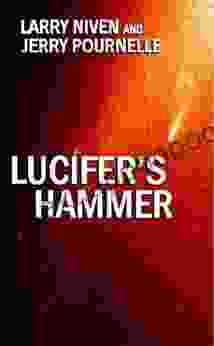
 Neal Ward
Neal WardUnleash the Infernal Power of "Lucifer's Hammer" by Larry...
A Cosmic Catastrophe that Will Ignite Your...
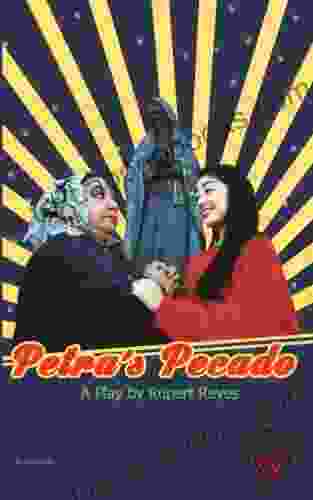
 Wesley Reed
Wesley ReedPetra Pecado: A Gripping and Unforgettable Journey...
Embark on a Captivating Adventure ...
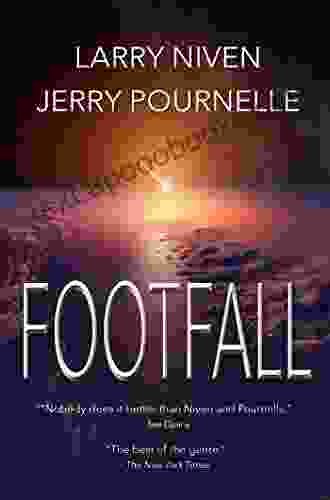
 Phil Foster
Phil FosterStep into a World of Wonders: Footfall by Larry Niven - A...
Prologue: In the vast expanse of the...
4.7 out of 5
| Language | : | English |
| File size | : | 2269 KB |
| Text-to-Speech | : | Enabled |
| Screen Reader | : | Supported |
| Enhanced typesetting | : | Enabled |
| Word Wise | : | Enabled |
| Print length | : | 172 pages |
| X-Ray for textbooks | : | Enabled |


